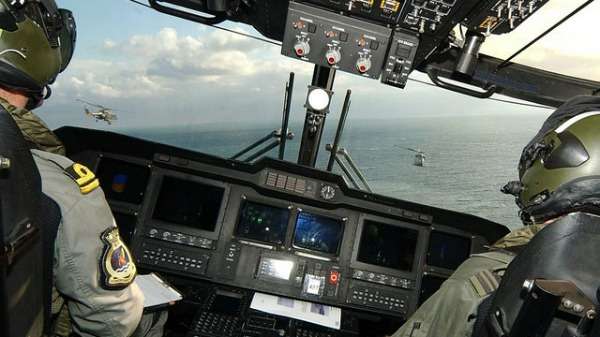Colour-blindness may aid in search and rescue efforts

Long considered a minor disability, being colour-blind might offer some advantages in areas such as search and rescue and police forensics.
The Lions Eye Institute (LEI) and University of Western Australia are aiming to put this theory to the test through a crowd-sourced research project.
While colour-blind people see as clearly as other people, according to LEI Managing Director Professor David Mackey, they see the world in two colours: red and blue, or green and blue.
"Looking at camouflage, they would see things slightly differently," Prof Mackey says.
"It just may be that people who see the world in two colours have more accurate vision-perception skills in some circumstances and are less distracted by colours in the environment."
For example, depending on the degree of their condition, some colour-blind individuals would see sharper contrast between a camouflaged person and a forest landscape, as they would not be susceptible to the blurring of green colours between the two.
Similarly, water-based search and rescue operators with a blue-light deficiency might be better able to see notable objects in the ocean.
Better clarity would also offer a different set of eyes for police searching for evidence at crime scenes.
The project was sparked by curiosity about the gender divide between normal-sighted and colour-blind individuals, with eight per cent of men colour-blind but only one per cent of women having the condition
Hunter-gatherers utilised colour-blindness for hunting
There are also suggestions it offered advantages to our ancestors, leading to natural selection.
"The sex differentiation of roles in hunter-gatherer societies is probably why we've evolved this way," Prof Mackey says.
"There are several good theories that hunters did a lot better if the group had a mix of colour-blind and non-colour-blind members."
This idea is backed up by anecdotal evidence that the American and British militaries targeted colour-blind individuals to help with camouflage-spotting in the Second World War, the Vietnam War and the Rhodesian War.
But these programs were never publicised for reasons of national security.
The current project is also about helping overcome discrimination.
"To tell people they can't be pilots, join the military or be on the police force is probably impractical, but it does happen in Australia," Prof Mackey says.
While the WA Police don't refuse colour-blind applicants, other states do.
The Australian Defence Force limits what jobs these soldiers can do while the American military currently refuses people with the condition.
Provided by Science Network WA
This article first appeared on ScienceNetwork Western Australia a science news website based at Scitech.




















